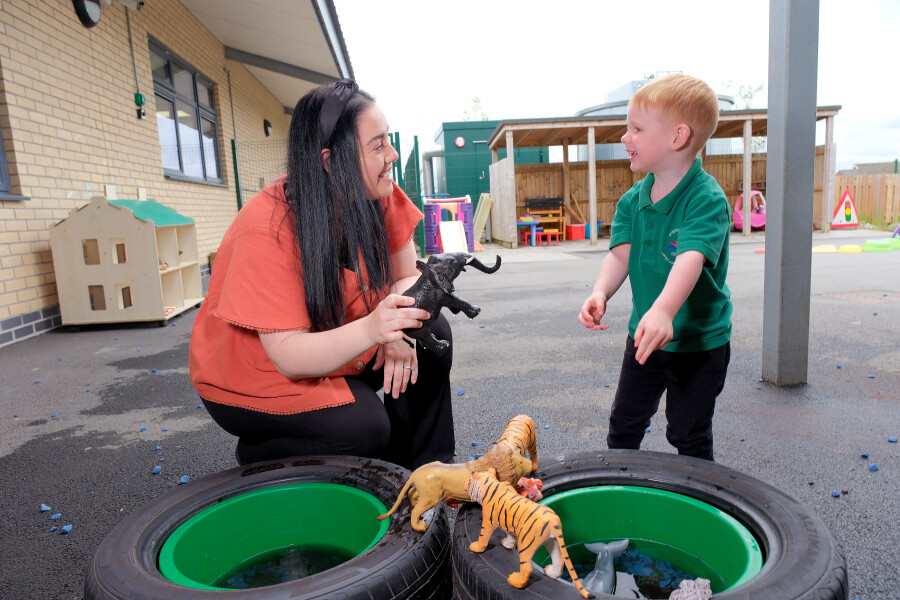
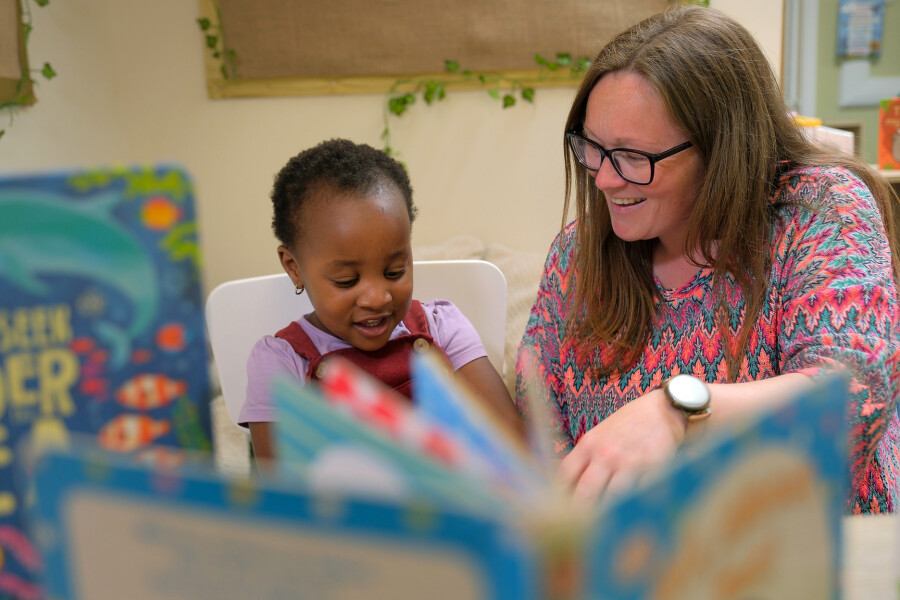
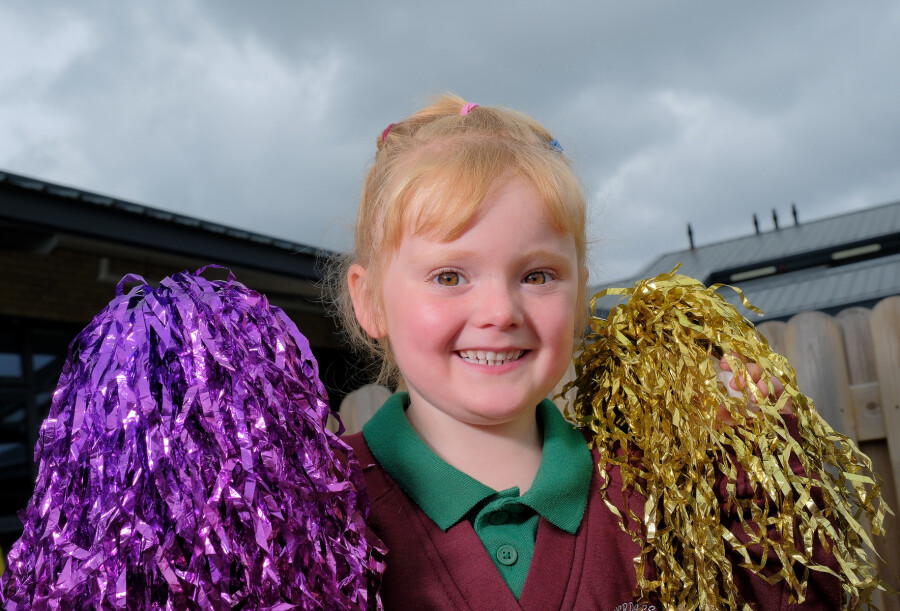
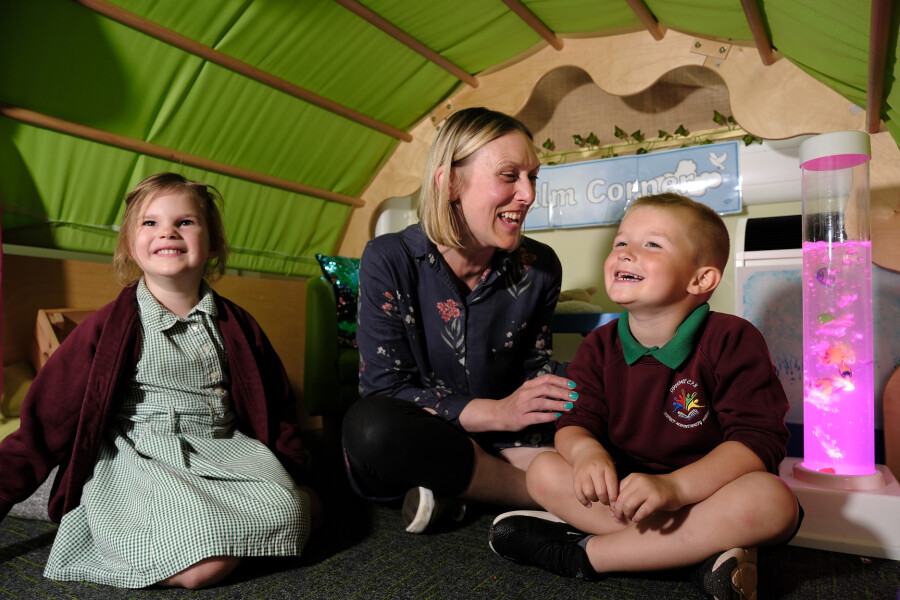

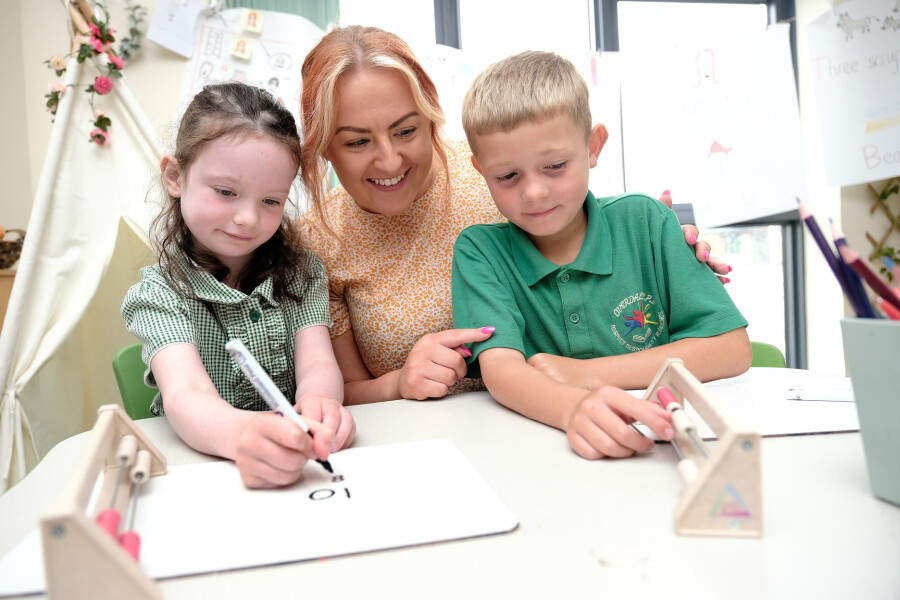
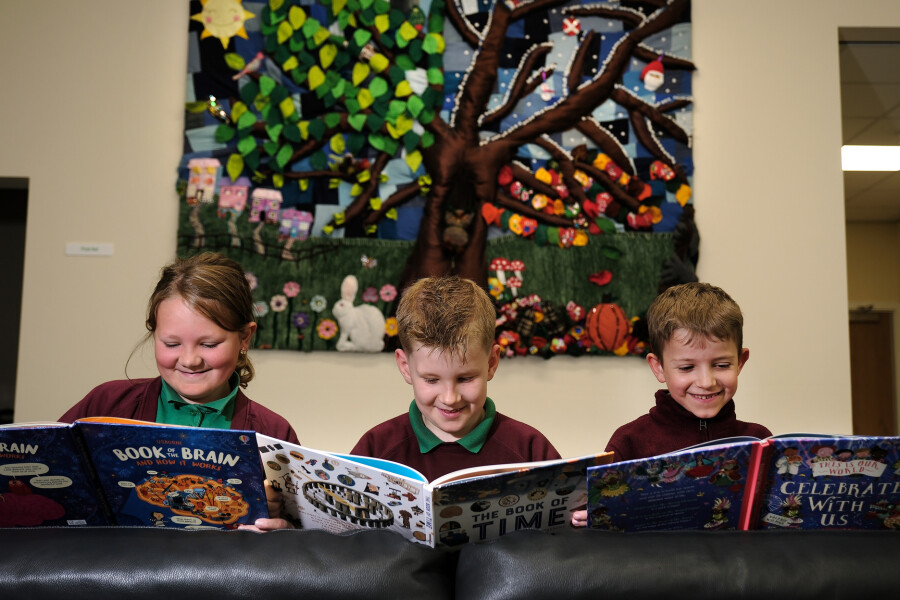
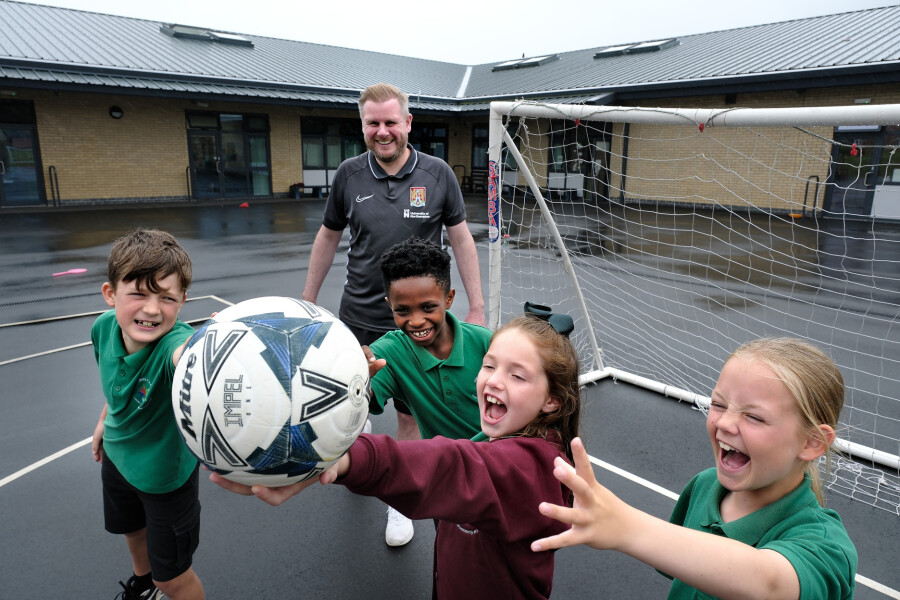
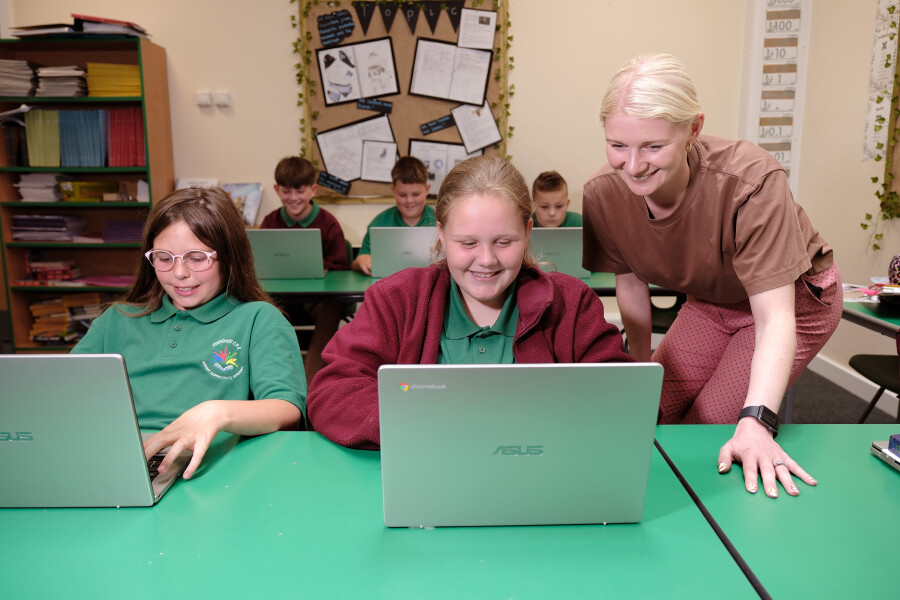

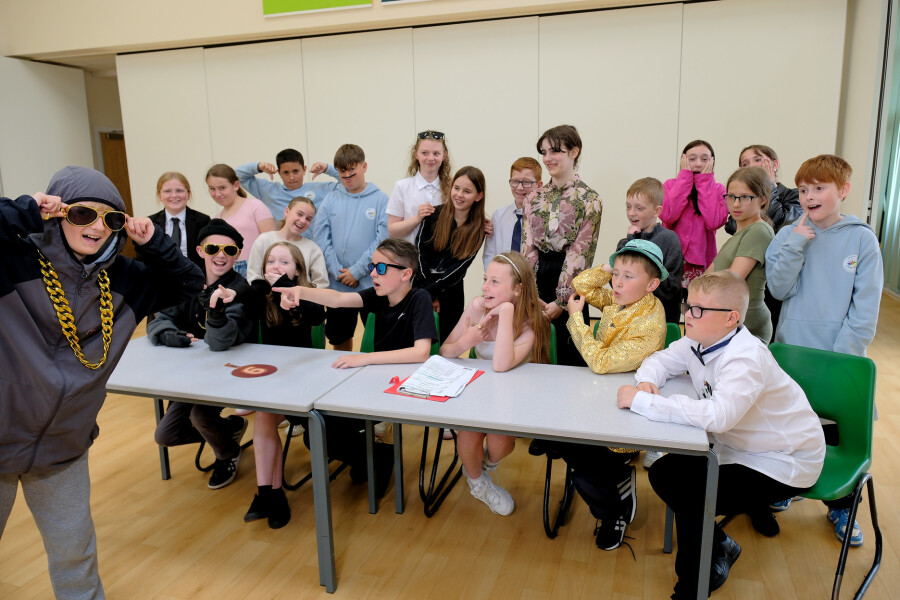
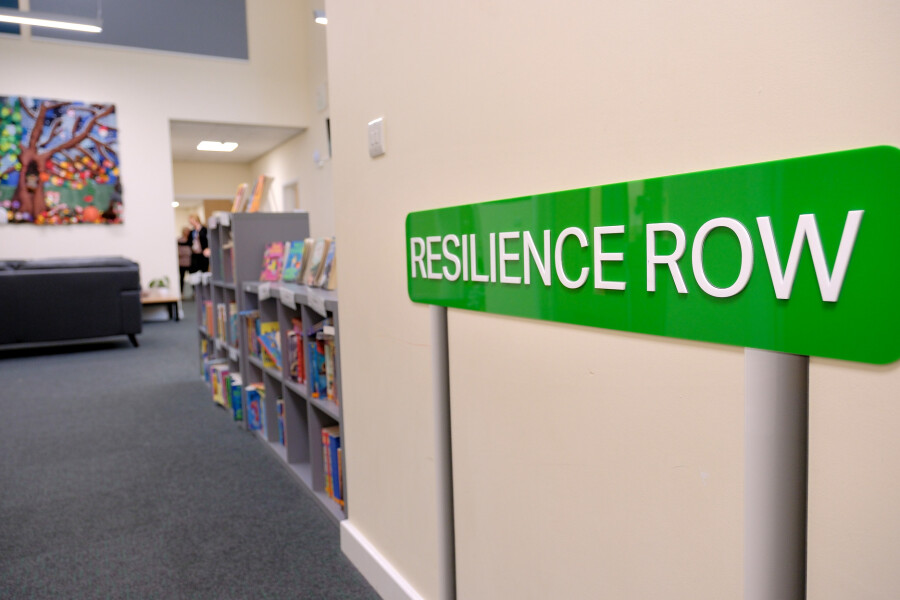
Curriculum - Maths
Curriculum Maths Overview
At Overdale Primary School, we have adopted a mastery approach for the teaching of mathematics that allows all pupils to move through the programmes of study at broadly the same pace. With this in mind, it is the belief that all pupils can achieve in maths. We strive to get the most out of every pupil’s ability and academic achievement as well as developing their confidence and competence.
At Overdale School, mathematical skills are embedded within maths lessons and developed throughout the school consistently over time. We are committed to ensuring that mathematics mastery places emphasis on the deep understanding of essential knowledge and skills in maths. We embed a deeper understanding of maths by using the concrete, pictorial and abstract approach so that pupils have an understanding of how maths is essential to everyday life, critical to science, technology and engineering, and necessary for financial literacy and most forms of employment.
At Overdale, we strive to have a culture where the pupils have a love of maths. We do this by inspiring pupils’ curiosity about the subject through challenges and the wider curriculum.
Intent
Our intent is that pupils who grasp concepts rapidly should be challenged through being offered rich and sophisticated problems before any acceleration through new content. Those who are not sufficiently fluent with earlier material should consolidate their understanding through a same day intervention approach called STRAND. This consists of a small focus group of pupils, identified as needing further support through continuous assessment for learning, being given further skill based teaching in the afternoon to support them in becoming secure within the taught learning intention.
At Overdale, our main aims for all pupils are:
• To become fluent in the fundamentals of mathematics.
• To be able to reason mathematically.
• To successfully solve problems by applying their mathematics knowledge.
• To be secure in their times tables up to the 12 times tables.
Implementation
We deliver the National Curriculum through the White Rose Learning Scheme, the NCETM progression document and a number of other resources to ensure that children are exposed to a range of mathematic problems that require critical thinking, rapid recall and reasoning skills. We use an Assessment for Learning approach that ensures we are aware of the children’s understanding of a maths concept at the beginning, middle and the end of the learning process around different maths objectives. Children also work on the mental arithmetic objectives once week, which look to give pupils strategies to be more efficient in their approach to mathematical problems.
At Overdale, we encourage and develop our pupils in the knowledge of times tables. By introducing exciting ways to learn these facts, the pupils enjoy participating and challenging themselves and others. The use of supporting resources helps to build competitiveness and drive the pupils to learn these basic skills. These are then woven into their daily life within school and it is our intent that pupils are fluent in times tables up to 12 by year 4. Pupils use Times Table Rockstars and other interactive tools to support them with their tables.
In EYFS, pupils are provided with opportunities to develop their fluency and introduce reasoning and problem solving skills in number, shape, space and measure. They use free-flow provision to master these areas of learning and apply this to a wider curriculum to observe and discuss mathematical findings in their play. We strive for our pupils to be confident and happy learners and set the foundations for their learning in order to build on this in subsequent years.
In Key Stage 1, our aim for all pupils is to ensure that pupils build on the fluency, reasoning and problem solving, confidence and mental fluency with number, space and measure. Pupils will have different opportunities within the sessions to use a range of methods that allow them to be effective learners. This enables them to move to Key Stage 2 with the next step of applying their knowledge to more complex problem solving so that they can then begin to apply to deepen their understanding.
In Key Stage 2, our intent is that pupils will build on their prior learning to help them master approaches and solve sophisticated problems. We ensure that all pupils continue through the key stage, on their mastery journey, with curiosity and excitement and frequently apply this learning in their lessons. Our mission is for all pupils to successfully leave Overdale prepared to continue on the mastery journey into Key Stage 3.
Impact
The teaching and assessing of mathematics at Overdale School follows the Assessment for Learning cycle of; plan, teach, review, assess. Children’s work is marked regularly, as part of our AFL policy and assessed against national curriculum objectives.
Children in EYFS are assessed regularly using the Early Learning Goals. Formal tests are administered to children from Year 1 to 6, to assist teachers with their assessment of individual achievement and progress in mathematics.
View/Download
| Document Name | Date |
|---|---|
| Addition and subtraction calculation policy July 2022 v2.pdf | January 10 2023, 20:56:34 |
| LTP.pdf | October 18 2023, 10:11:02 |
| Maths Curriculum Overview 2023 - 24.pdf | October 18 2023, 10:07:58 |
| Multiplication and Division calculation policy July 2022.pdf | January 10 2023, 20:53:35 |
| Progression of skills MATHS.pdf | October 18 2023, 10:13:15 |